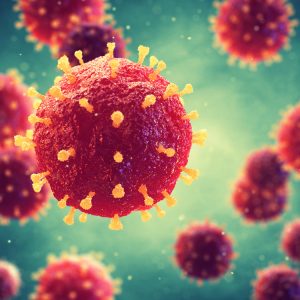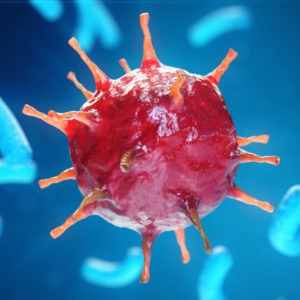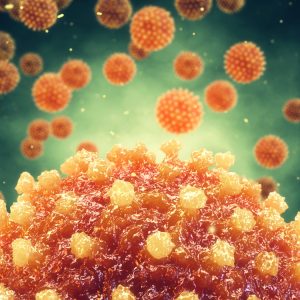Rubella Virus
Rubella virus is the causative agent of Rubella disease, a highly contagious acute viral infection which is also known as German Measles. In children and young adults, Rubella virus infection is a self-limiting disease that may cause a mild fever, malaise, conjunctivitis and a rash around the head and neck. In pregnant women, Rubella virus can infect the foetus causing miscarriage or multiple foetal defects referred to as congenital rubella syndrome.
The Native Antigen Company provides Rubella virus antibodies, antigens and immunoassays which are ideal for use in a wide range of research studies.
Rubella Virus Background
Rubella virus (RV) is a single stranded positive sense RNA virus. It is the sole member of the Rubivirus genus which belongs to the Togaviridae family of viruses. Humans are the only known host of Rubella virus and infection is spread from person-to-person via respiratory aerosol droplets.
First isolated in 1962, RV is the causative agent of a highly contagious disease known as Rubella or German Measles. Rubella is an acute self-limiting and generally mild disease predominantly affecting children and young adults. The infection can be asymptomatic in some cases or may cause a mild fever with symptoms of malaise, conjunctivitis and a maculopapular rash (Lambert, N).
However, RV contracted during the first trimester of pregnancy is of significant health concern, as it can be passed to the foetus in approximately 90% of cases (WHO). Rubella infection in the foetus can result in miscarriage, foetal death or multiple congenital defects referred to as congenital rubella syndrome (CRS). Congenital defects associated with CRS commonly affect hearing, sight, heart and brain. Other life-long conditions associated with CRS include autism, thyroid dysfunction and diabetes mellitus (CDC).
Rubella infection and vaccination provide >95% chance of developing lifetime immunity. Vaccination, using a live attenuated strain of the virus, has significantly reduced the risk of developing Rubella, and CRS, in countries where a well-established vaccination program is in place. However, many countries still do not include Rubella vaccination in their National immunization programme and women of childbearing age are at high risk of developing Rubella in these areas.
References
- Lambert N, Strebel P, Orenstein W, Icenogle J, Poland GA. (2015) Rubella. Lancet. Jun 6;385(9984):2297-307.
- World Health Organization: Factsheet/Rubella
Rubella Virus Antigens
We offer both Rubella virus antigens and VLPs expressed as recombinant proteins in our mammalian expression system.
Rubella virus spike glycoprotein E1 and capsid nucleoprotein are available and a Rubella virus-like particle (VLP), comprising the Rubivirus full-length structural polyprotein (spike glycoprotein E1, spike glycoprotein E2 and Capsid protein).
These antigens are suitable for use in assay development, vaccine research and as antigens for the preparation of Rubella-specific antibodies.
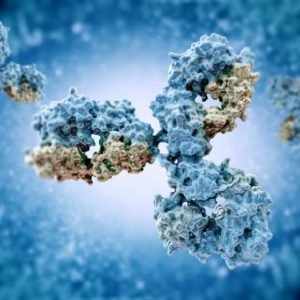
Mouse Anti-Rubella virus Glycoprotein E1 (1712)
$454.04 excl. VAT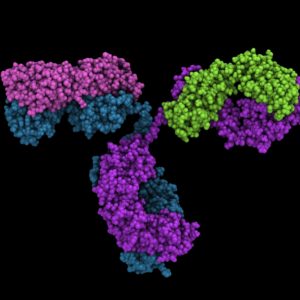
Mouse Anti-Rubella virus Glycoprotein E1 (1714)
$454.04 excl. VAT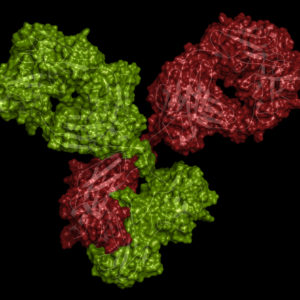
Mouse Anti-Rubella virus Glycoprotein E1 (1715)
$454.04 excl. VAT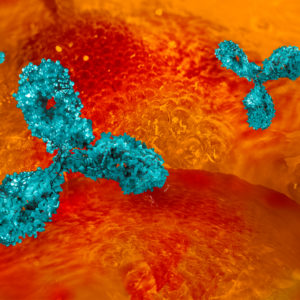
Human anti-Rubella virus IgG (DD5), Recombinant
Price range: $346.02 through $1,474.57 excl. VAT
Human chimeric anti-Rubella virus IgM (DD5)
Price range: $738.05 through $3,136.72 excl. VAT
Mouse Anti-Rubella virus Glycoprotein E2 (1717)
$454.04 excl. VAT
Mouse anti-Rubella virus IgG (DD5)
Price range: $596.98 through $2,537.03 excl. VAT
Rubella Virus Antibodies
The Native Antigen company offers a range of monoclonal antibodies specific to Rubella virus and suitable for the development of immunoassays. These include antibodies binding spike glycoproteins E1 and E2 and our Rubella virus-like particles (containing E1, E2 and Capsid proteins).
Questions?
Check out our FAQ section for answers to the most frequently asked questions about our website and company.

